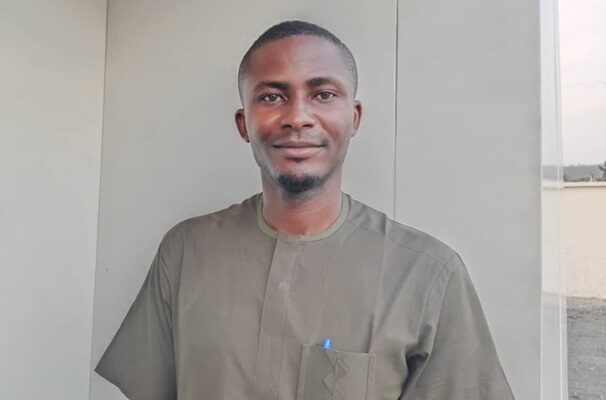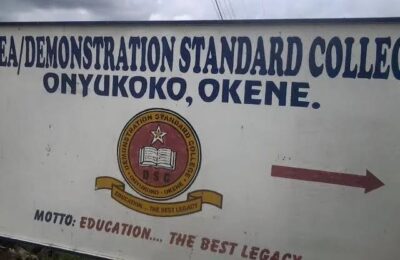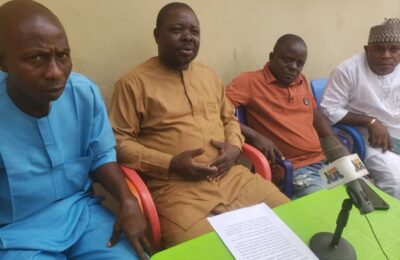On October first, nineteen sixty, Nigeria, the Giant of Africa gained her independence from Great Britain, paving the way for the North and South to form an entity now known as Nigeria.
The story of Nigeria’s Independence is a tapestry woven with contributions from diverse regions, and a significant thread to the land now known as Kogi State.
While Kogi State itself was created much later in 1991, the areas especially formerly known as Kabba Province, with the historic city of Lokoja at their heart, played an indispensable, foundational role in the making of the modern Nigerian entity.
This is because Lokoja’s centrality, both geographically and historically, elevates the region’s place in the narrative of Nigerian nationhood from a mere footnote to a crucial chapter.
Before the Independence, Lokoja the present capital of Kogi State was the Cradle of the Nation hosting Frederick Lord Lugard, the last Governor of the Northern Nigeria Protectorate, and Southern Nigeria Protectorate before the amalgamation.
Also known as the Capital of the Confluence State where the two great rivers, Niger and Benue meet, the geographic distinction was its first claim to colonial fame, making it a critical trading post and a point of entry into the hinterlands for European explorers and traders.
As the first administrative and political capital of modern Nigeria, the name “Nigeria” was coined by Flora Shaw, the then future wife of Lord Lugard, while gazing upon the River Niger from Mount Patti in Lokoja in the late 19th century.
While the seed of Nigeria as a unified colonial project was sown and nurtured inKogi State, this simple act of nomenclature provided the very identity the independence struggle sought to liberate.
From the foregoing, it is obvious that the history of Kogi State, which was caved from parts of Kwara and Benue States, represents a reunion of peoples who shared a common history and administrative experience within the defunct colonial structures, most notably the Kabba Province.
And that is why till today, there’s no State in the country that shares boundaries with other States like Kogi State in the country.
Therefore, the Independence we celebrate today is a testament to the collective efforts, including the symbolic and administrative bedrock laid in Lokoja and the active political involvement of the Igala, Ebira, and Okun people.
At this juncture, a comprehensive appreciation of Nigeria’s journey to freedom must therefore fully acknowledge the enduring and foundational place of Kogi State
Unfortunately, Mount Patti, where the name Nigeria was pronounced is not supposed to be in its current State, in view of its importance to the history of the Independence of Nigeria.
In fact, successive Ministers of Culture and Tourism from the records have not visited the Mountain which is expected to be a monument for the young generation and Tourist both within and outside the country.
As the nation celebrates its sixty fifth year of independence, it is worthy to note that the treatment of Kogi State has not been fair enough.
For instance, the moribund Ajaokuta Steel Company Limited established in nineteen seventy nine is yet to be functional despite promises by successive administration at the Centre.
This Project apart from being important to the economic transformation of Nigeria, Kogi State also has a stake in it as it would have provided hundreds of thousands of jobs for youths of the State.
Also, Federal roads in Kogi State are crying for attention as they remain a death trap for travellers and have created untold hardship to residents likewise.
From Abaji to Lokoja, Lokoja-Anyigba-Ankpa, Ajaokuta-Okene, Ilorin-Egbe-Kabba, Omuo-Kabba roads, travellers spend more hours on the roads as the condition has made criminals to take advantage to carry out their nefarious activities.
There are also abandoned Federal Projects in the State as some were recently reactivated through the efforts of the State Governor, Alhaji Ahmed Usman Ododo.
Consequently, the Federal Government must give attention to Kogi State in view of its critical role during the Colonial rule by investing in the historical relics and overall development of the State.
Time has come for the Federal Government to declare State of Emergency on its Roads in the State as such move will give a sense of belonging to the people and make them believe that they are not second citizen.
Now that the State is faced by Security challenges in some parts of the State, the Federal Government must invest more on Security in Kogi as it is the gateway to the Federal Capital Territory.
The people should continue to support the Government in its bid to bring hope to the nation by being law abiding and providing information that will help nip crimes and criminality in the Bud.
By so doing, the state will attain its aspirations and enjoy the critical role played in the colonial and post colonial era.
– Emmanuel Oluwakorede, a Kogi-based Journalist, writes from Lokoja.




